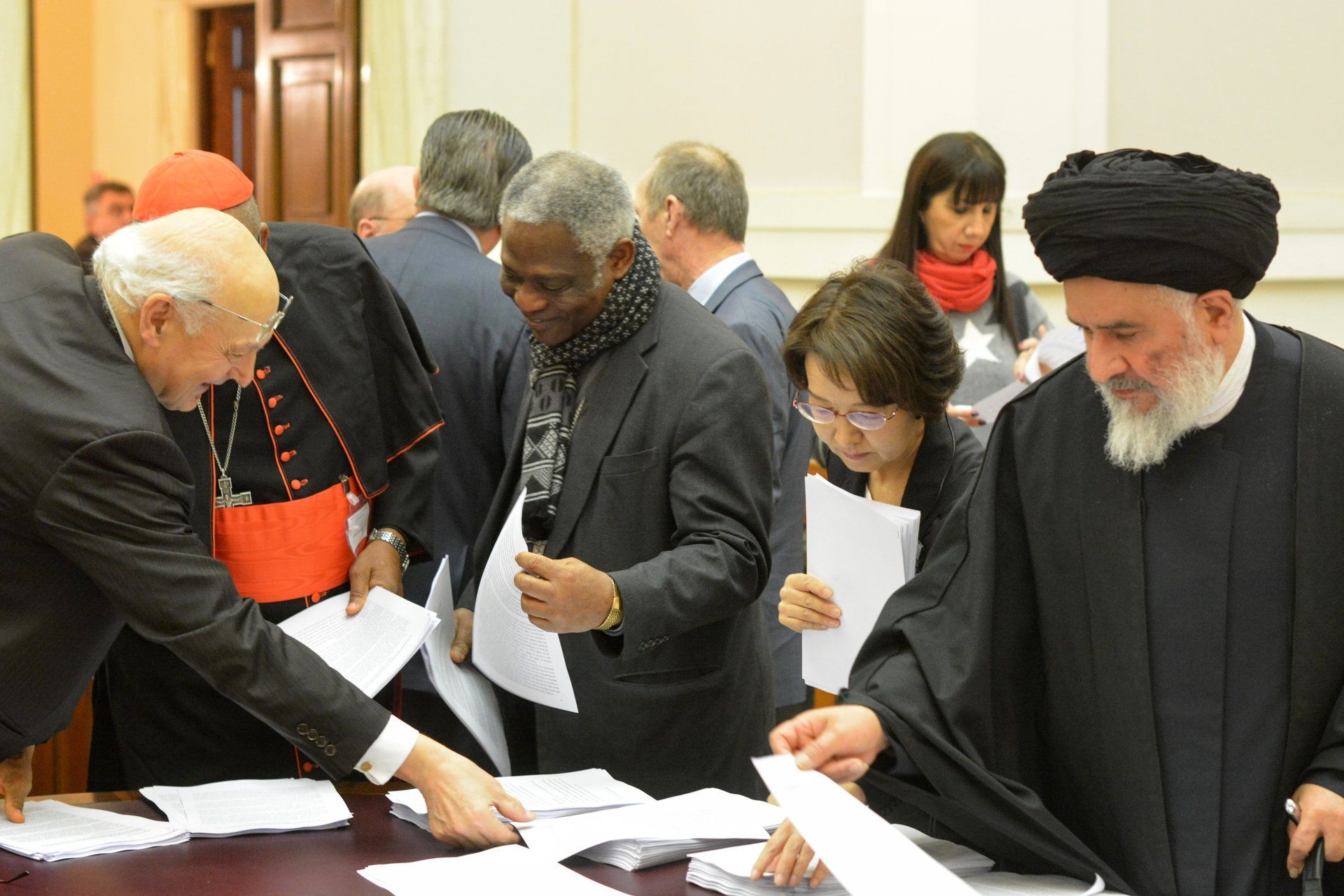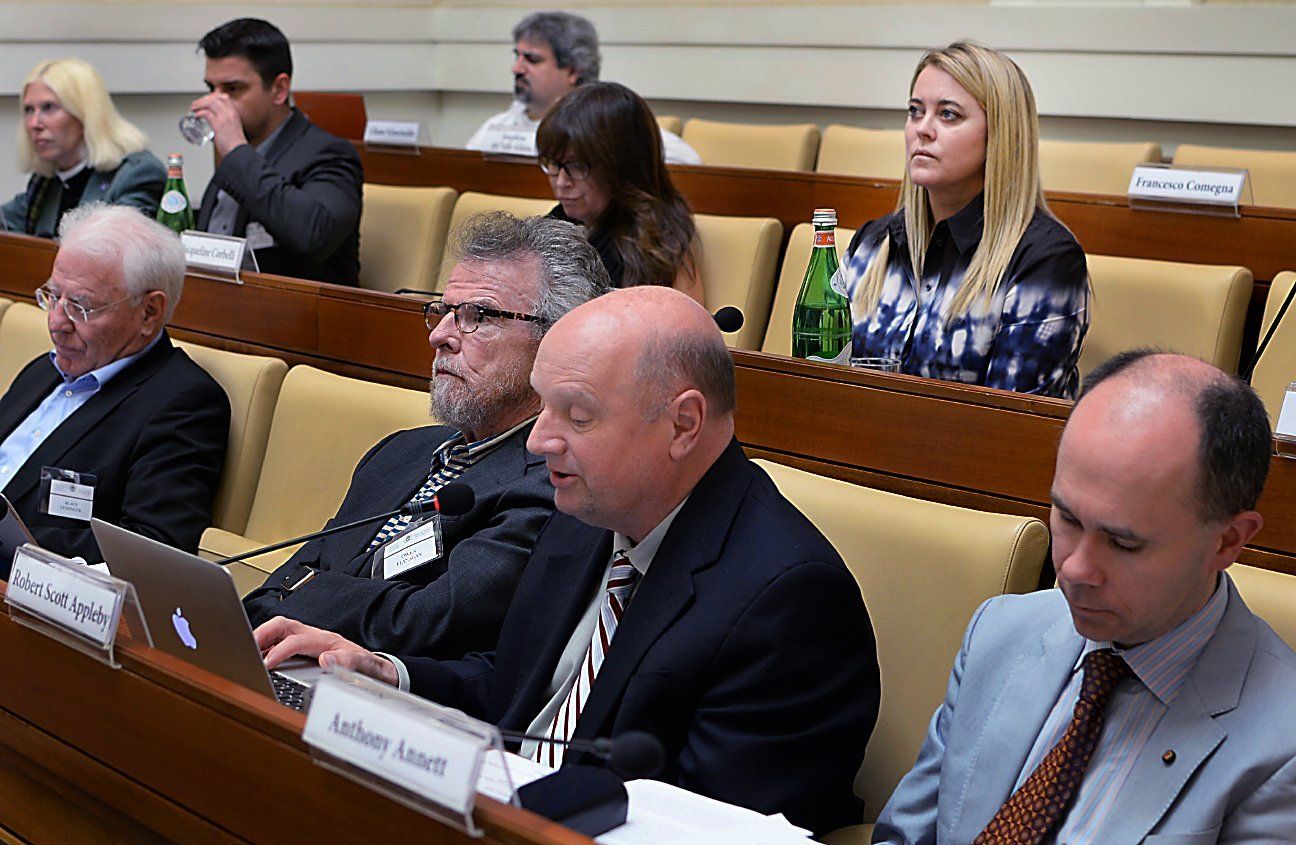Faith and Science for Happiness and Sustainable Development
Blue Chip Initiatives
Since the teachings of Confucius, Plato, Aristotle, Buddha, Hebrew prophets, and Jesus in the Sermon on the Mount, the quest for Beatitudo (Eudaimonia gr.), or human flourishing, has been a central concern of moral teachers, philosophers, theologians, and scientists. St Augustine and St Thomas Aquinas considered the Beatitudes (the Sermon of the Mount) as the original proposal of Jesus Christ, just as the Commandments were for Moses. The ancient Greeks and the Classic philosophers asked how human beings should live in order to reach eudaimonia. The Church teaches that happiness is found through a combination of love and justice, faith and reason. Today, the human sciences, notably psychology and neuroscience, are adding enormously to our understanding of human nature, individual and social learning, and happiness .
Around the world, there is an urgent search for happiness , reflecting a current individualistic, greed-driven global economy that is producing widespread inequalities and suffering rather than happiness. Anxieties and addictions abound, in part because the modern economy deliberately creates them as part of the “business model” of major industries. We must realign our thinking, our behaviors, and our institutions both with the ancient and enduring wisdom based on the common good, and the modern neuroscientific, psychological, sociological, anthropological, and philosophical understanding of well-being.
The Pontifical Academy of Social Sciences (PASS) and the Pontifical Academy of Sciences (PAS) are ideally placed to investigate, understand, and bolster happiness in the 21 st century. The Church’s social teachings are built on the Beatitudes and Matthew 25 (“when you did it to one of the least of these my brothers and sisters, you were doing it to me!”), which were reproposed by Pope Francis in his powerful appeal to the world to overcome the “globalization of indifference.” The Church’s wisdom of two millennia offer invaluable guidance for the lives of individuals and communities to be embedded with meaning, purpose, and virtue. The two Pontifical Academies include many of the world’s leading minds in the areas of natural sciences, neuroscience, philosophy, theology, psychology, sociology, political science and economics, all critical disciplines for a 21 st -century investigation of the genuine pathways to happiness and for the building of a new civic economy that delivers integral and sustainable development .
The Blue Chip Foundation and the Ernesto Illy Foundation have tentatively offered to partner with and support the PAS, PASS, and the UN Sustainable Development Solutions Network to undertake a series of meetings in the coming two years to explore Faith and Science for Happiness and Sustainable Development (or, in short, The Vatican Happiness Project). The objective is an actionable synthesis of recent scientific findings and their relation to the Church’s teachings and ancient philosophical approaches. Sessions will cover topics such as the philosophical and theological understandings and underpinnings of happiness, the cardinal virtues and happiness, the natural science of happiness, the sociology of happiness, the politics of well-being, the causes and cures of modern addictions, the global epidemiology of mood and anxiety disorders, the emerging neuroscience of happiness, well-being education and the happiness of the young, digital technologies and well-being, and global economics, sustainable development, and happiness.
With the leadership of the Pontifical Academies, and the Church’s Social Teachings, we have the opportunity to advance the pursuit of happiness beyond the narrow confines of material self-interest, to a great extent initiated by Thomas Hobbes and David Hume in the British philosophical tradition. That tradition, so influential today, unduly emphasizes individualism over the common good, competition over cooperation, and neglects the crucial need for friendship, collaboration, healthy competition and organized community to achieve well-being. A new human sciences, based on a more accurate and scientific understanding of human nature and the role of ethics could usher in new civic institutions that build trust and social capital and that foster sustainable and integral development in line with Pope Francis’ teachings in Laudato Si’, lessons that are perennial and at the same time powerfully timely given the alarming social, environmental, economic, and human conditions amidst the unprecedentedly promising scientific, philosophical, and theological landscapes.
The Vatican Happiness Project will build upon and augment the happiness programs now underway at the SDSN, including the World Happiness Report, supported by the Ernesto Illy Foundation, and the Global Happiness Council, initiated and supported by the United Arab Emirates, now partnered with the OECD. It will also draw upon the findings of the Ethics in Action program, led by the SDSN in partnership with the Blue Chip Foundation .
Photos from the Faith and Science conference
JOIN OUR NEWSLETTER
We will get back to you as soon as possible
Please try again later


Follow Us
Blue Chip Foundation focuses on alleviating extreme poverty through economic, educational, and social enterprise initiatives in support of the United Nations' Sustainable Development Goals (SDGs)






